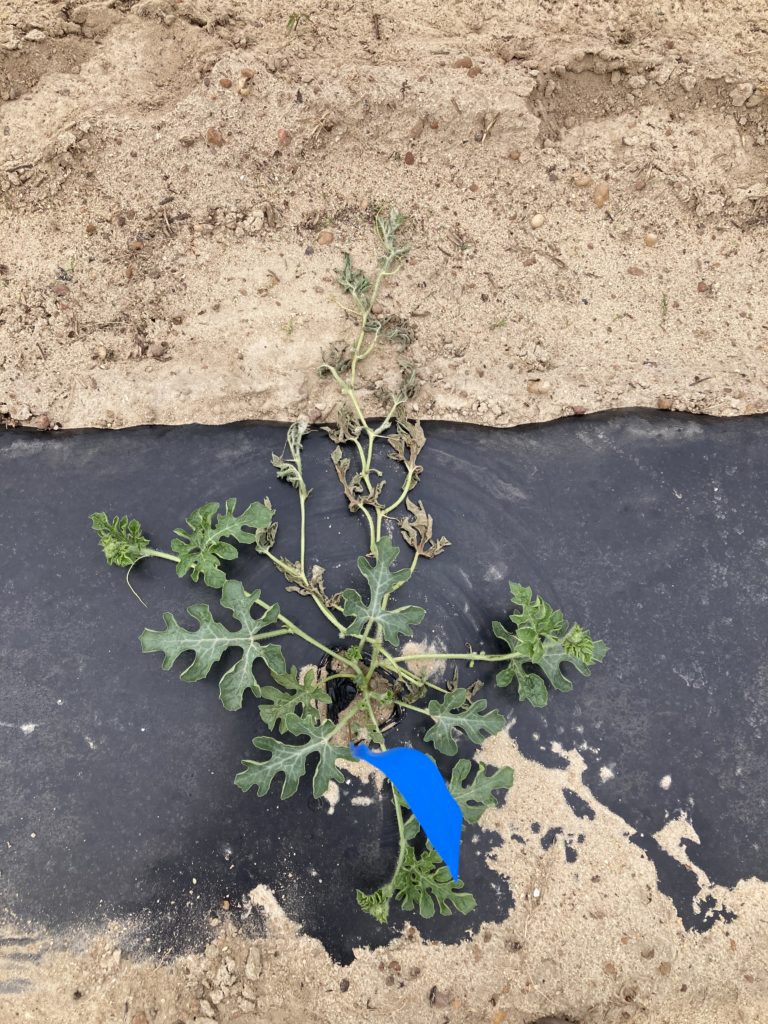By Clint Thompson
A five-county University of Georgia (UGA) Extension research project is yielding positive results regarding the management of fusarium wilt disease. The research from the South Georgia counties of Berrien, Cook, Crisp, Wilcox and Turner has potentially provided another tool in the toolbox for watermelon growers challenged with this annual problem.

Extension agents have researched various rootstocks and their effectiveness against the disease. One has provided favorable results, according to UGA Extension vegetable plant pathologist Bhabesh Dutta.
“We do see favorable results with Carolina Strongback rootstock. What we’re seeing with this particular rootstock is it’s not immune to fusarium, but it does have a good level of resistance,” Dutta said.
The main concern with a customized rootstock, though, is its expense.
“Grafted plants are definitely an option but the problem with grafted plants is the cost. They’re considerably more expensive than a non-grafted plant. You see a lot less fusarium in grafted plants, but the costs are the drawback there,” said Tucker Price, Cook County Extension coordinator, who is participating in the research trial.
Each Extension agent collaborates with Dutta in testing if the rootstocks are resistant to fusarium wilt. Price said fusarium is a disease in the soil that becomes noticeable when there is cooler weather. As soon as the temperature warms up, growers will see less of it.
“I’ve seen farmers actually quit planting a particular field in watermelons because of it,” Price said. “North Cook County, northwest Berrien County and South Tift County, that’s a hotbed for fusarium right there.”
Price and fellow Extension agents are in the third year of the study to determine how the rootstock holds up in Georgia’s environmental conditions. While a grafted rootstock may provide better protection against fusarium, it is not recommended for all growers. Producers will have to consider the expense which can increase to as much a $1.10 a piece, Dutta said.
“We are not recommending this to everyone but what our hope is, if a grower doesn’t have any choice, if he’s used up all of his arsenal against fusarium, at least in limited acreage, he can do these things with the rootstocks,” Dutta said.









